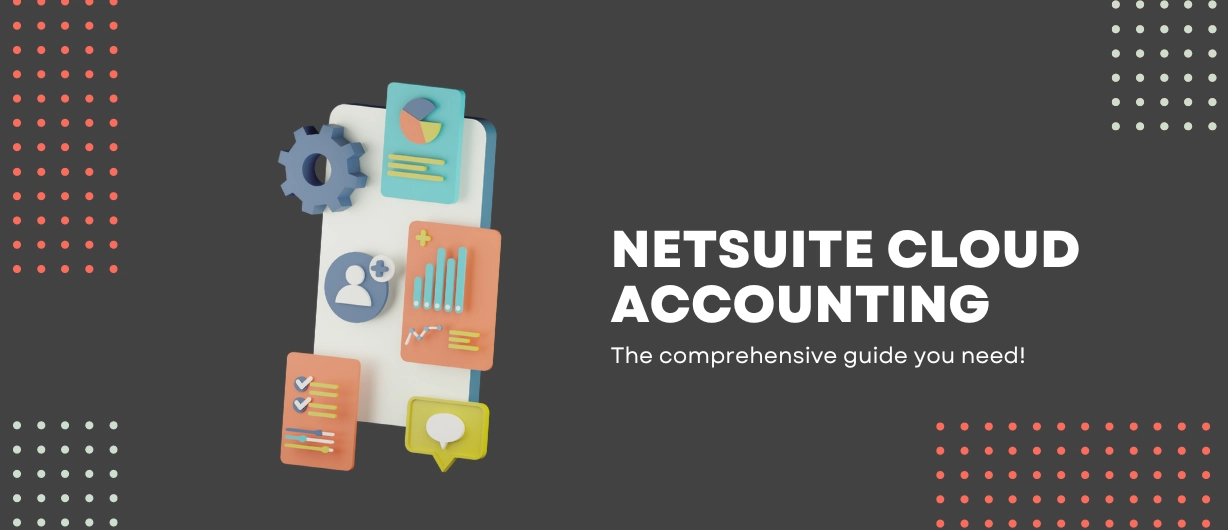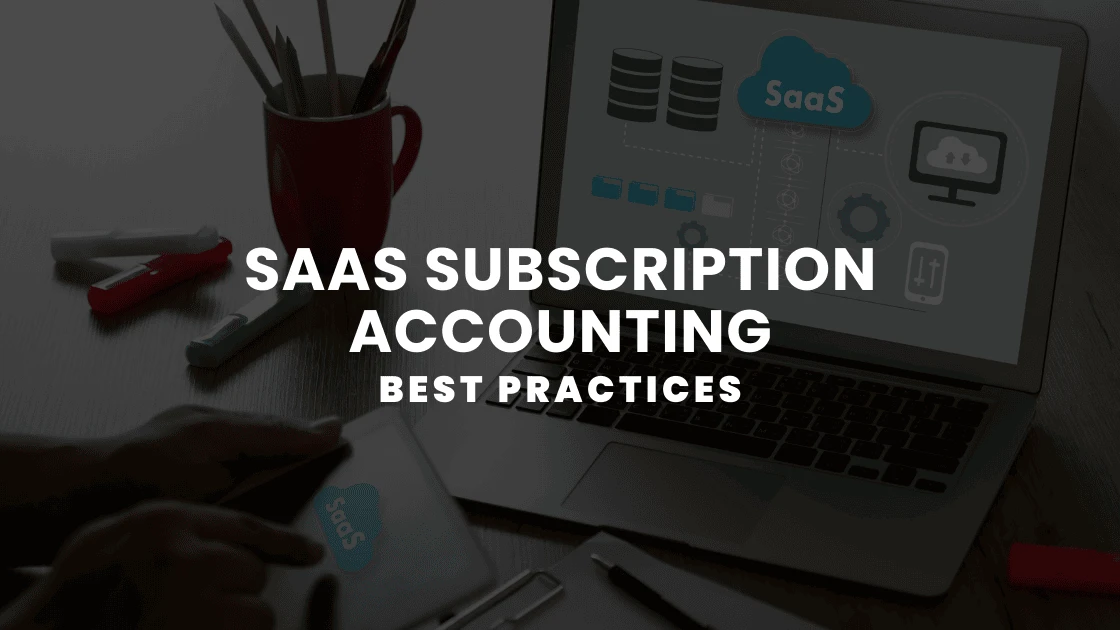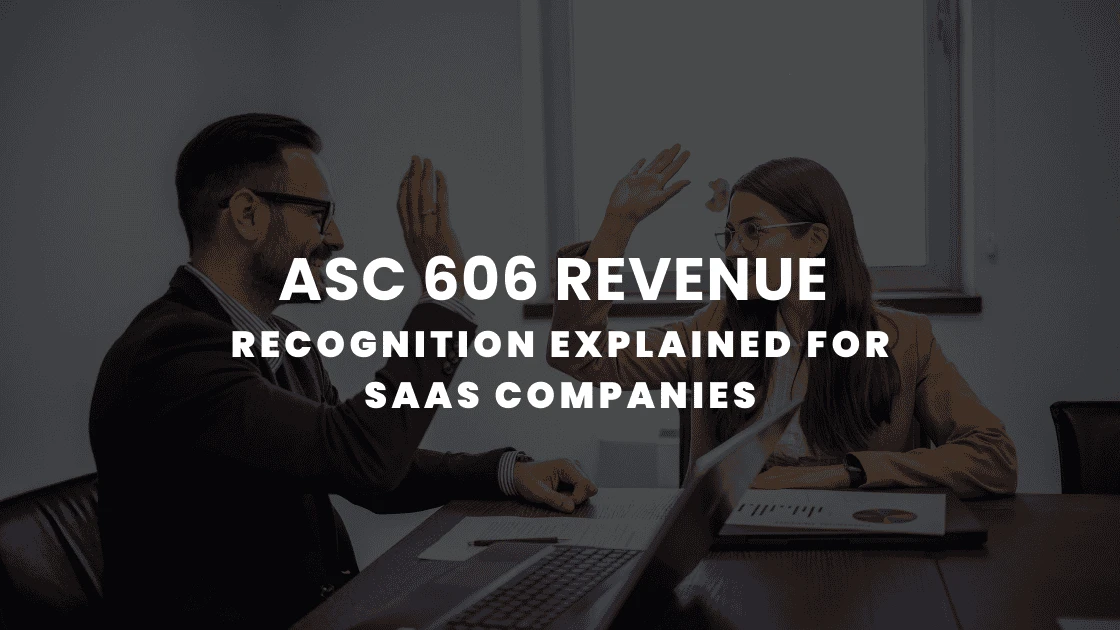February 21 2024 | By Wajiha Danish | 8 minutes Read

What’s So Special About ERPs?
Benefits of Cloud Accounting Systems?
How and Why is NetSuite Cloud Accounting Beneficial to My Business?
What are Some Specific Benefits of NetSuite Cloud Accounting that My Business can Benefit from?
What Exactly do I get in a NetSuite Cloud Accounting Package or System?
And That’s Not All You Get with NetSuite Cloud Accounting!
Is NetSuite Cloud Accounting Really for You?
We already detailed in a previous blog here, what NetSuite is all about. In short, it is a cloud-based suite of management tools that, on a single platform, caters to several business management functions and operations, all on the cloud. This means that as long as you’re connected to the internet, you can plan the entire resources of your enterprise from anywhere around the world. You can, of course, use them on premises too, just that you’re not restricted by being tied down to a single server’s location.
NetSuite is the cloud ERP (enterprise resource planning) systems company that pioneered this technology and toppled the status quo of the business world from yesteryears.
NetSuite Cloud Accounting is one of the product offerings by NetSuite, others being Project Management, CRM (customer relationship management), HRM (human resources management), eCommerce, and many more.
This blog will provide you with a comprehensive and insightful overview about everything NetSuite Cloud Accounting, and will also highlight how Monily’s NetSuite Accounting Specialists can add value to your business by offering tailored and customized accounting solutions that cater to the specific challenges that your unique business faces.
ERP stands for enterprise resource planning, and while the term should be self-explanatory, let us show you with an analogy or two what the special benefit of ERPs is.
Suppose you’re the owner or driver of a car – rather than different people managing different parts of the car, thus managing and storing different supplies for the car at different locations, and different people having authority over different parts and functions of the car, you, as the owner or the main driver, are in charge. You decide when to change the engine oil, when to retouch the interior of the car, whether to have car seats installed for the children of your family or not, whether to change the paint of the car or not, and so on and so forth.
In another example: you’re the owner and manager of your own finances – you earn via a job or a business, you bring in the money, and you decide what that money is spent on. You also decide how to manage, maintain, use, enjoy, replace, and dispose of everything that you spent that money on.
In both the cases, the theme is the central locus of control, the center of authority as well as resource management. That is the power of ERPs – the ability to manage and optimally utilize resources at hand, especially due to the fact that they’re all connected to a single core, and everything is integrated, working together to achieve common goals for your business.
To put it simply, ERPs help reduce time, money, and effort spent in running a business.
Cloud accounting systems are accounting softwares the data for which is stored on the cloud. This helps and benefits businesses in multiple ways:
As a business owner, what more do you want?
Technically speaking, you can use any cloud accounting system that meets your budget and appeals to your preference. But why be different from the rest of the world if conforming will only prove beneficial to you?
To elaborate, suppose you opt for cloud accounting systems by RandomX (a hypothetical company). It fits your budget constraints, it meets your business needs, it is easy to learn and use, and a million other reasons. But, hardly anyone has even ever heard of it, and it takes you a lot of time to convert files to, you guessed it, NetSuite formats or formats NetSuite users are familiar with, before you can send it across to your business associates. Why would you not want to capitalize on the benefits uniformity brings about?
As listed above, there are several uses and benefits that the entire world is capitalizing on, and it would, in this case, be detrimental to your business to stick out like a sore thumb.
We’ve mentioned in our previous blog a few items in detail that you can get help with via NetSuite Cloud Accounting. Here though, we share with you a longer list, with a few details where necessary, of the accounting operations you can cater to when it comes to running your business smoothly.
While the following list is not exhaustive, here are some operations within the finance and accounting function that the NetSuite Cloud Accounting systems can help a business operate seamlessly:
As an official partner of Oracle NetSuite, we at Monily have ensured that our clients get the best of the entire NetSuite world when it comes to their accounting and finance function. Not only do we help you with all the benefits and operations mentioned above, we ensure that you also get the benefits of Oracle NetSuite Analytics.
NetSuite Analytics is a feature of the NetSuite SuiteCloud that enables businesses to create custom dashboards to track their KPIs. They also help you easily generate reports from across your business, at any given point in time, so you can view the progress and health of the accounting and finance practices of your business, so you’re never in the dark nor ever caught by surprise.
Some of the ways you can benefit from NetSuite Accounting Analytics include:
Many large enterprises use a couple of other cloud accounting software and platforms for sure, and the leading one is SAP. But NetSuite is fast catching up to that lead and closing the gap with leaps and bounds.
However, NetSuite sure is a favorite among small- and medium-sized enterprises. This is because logically speaking, it just makes more sense because NetSuite has tailored their solutions to meet the unique needs of businesses of small and medium sizes, which make up a huge segment of the total business market.
NetSuite Cloud Accounting is also one of those ERP systems that are easy to adopt by businesses in a number of industries, be it computer software, financial services, staffing and recruiting, management consulting, retail, hospital and healthcare, marketing and advertising – you name it.
So if you’re wondering if NetSuite Cloud Accounting is right for you and whether the time for adoption has arrived or not, contact us today at info@monily.com or give us a quick call at + 1 (832) 391-3460, and our NetSuite Accounting Experts will guide you through each step of the way to make an informed business decision that will only be beneficial for your company. Alternatively, you can also book a free, no-obligations consultation slot with our small business accounting experts here.
Subscribe for business tips, tax updates, financial fundamentals and more.
MORE BLOGS

Running a SaaS business can look simple from the outside. Customers sign up, pay monthly or yearly, and keep using the product. Quite straightforward, right? Behind […]
Learn More →
Revenue is the heartbeat of any SaaS business. But how and when that revenue shows up on your books can change everything, from investor confidence to […]
Learn More →
If you’re a small business, we will absolutely get it if you say you’re having a hard time choosing a payment platform for your company. And […]
Learn More →